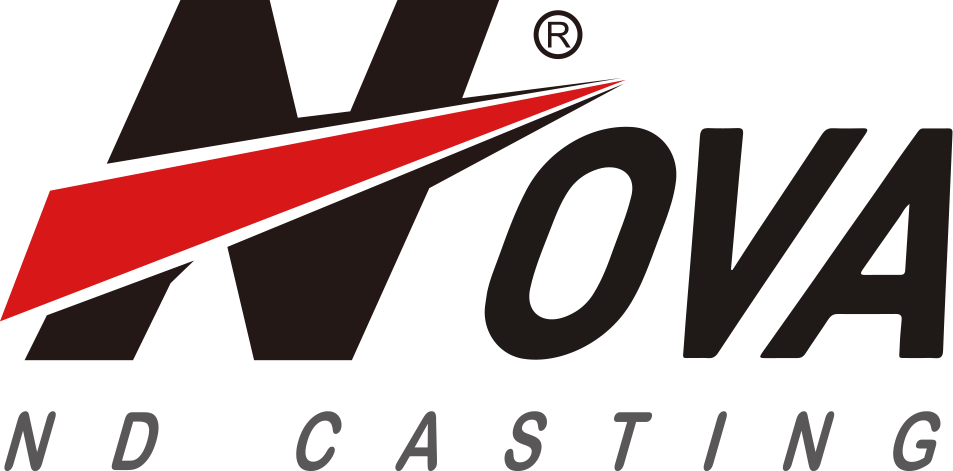Evaluate Supplier Reputation and Industry Experience
Importance of Industry Experience in Automotive Sector for Long-Term Reliability
According to the Automotive Supply Chain Report 2023, companies that have been around for over a decade in automotive casting experience about 32% fewer production holdups than those who are just starting out. The reason? These established firms know their stuff when it comes to handling just-in-time manufacturing schedules, keeping up with all sorts of new materials coming into play, and making sure everything meets the latest safety requirements. What really matters though is how they handle specific challenges. For instance, seasoned manufacturers work hard to make sure engine parts can withstand high temperatures while also preventing rust on chassis components. This kind of know-how makes all the difference for cars that need to perform reliably even in harsh conditions like deserts or Arctic climates where regular components might fail.
Assessing Supplier Reputation Through Client Testimonials and Case Studies
Looking at case studies about how to improve brake caliper longevity or stop transmission housing leaks can provide valuable insights. It's important to verify what these studies say against real world data from sources like industry reputation reports (think Sino Extrusion 2023 findings). When comparing suppliers, experience matters. Companies working with three big electric vehicle makers since 2018 probably have better quality standards compared to those without proven relationships with original equipment manufacturers. But this isn't always guaranteed, so checking actual performance records remains essential for making informed decisions.
Role of Certifications Like IATF 16949 and ISO 9001 in Verifying Credibility
Certified suppliers show:
- 57% lower defect rates in suspension components (IATF 16949 Audit Data 2023)
- 89% compliance with material traceability requirements (ISO 9001 Standards)
- Validated process controls for porosity prevention in aluminum wheel hubs
These certifications confirm structured quality management systems tailored to automotive demands.
Certified Suppliers vs. Proven Field Performance: Balancing Credentials With Real-World Results
While certifications reduce risk, some uncertified suppliers achieve 0.05mm tolerance in steering knuckles through proprietary molding techniques. However, 78% of OEMs require IATF 16949 for engine block suppliers due to its failure-mode analysis framework—a critical gap for non-certified vendors, even if field performance appears strong.
Assess Technical Expertise and Manufacturing Capabilities
Mastery of Precision Casting Methods: Die Casting, Investment Casting, and Sand Casting
Leading automotive casting companies have expertise across multiple techniques including die casting, investment casting, and traditional sand casting to handle different component requirements. Die casting works best when manufacturers need lots of complex parts quickly, such as transmission housing components with walls thinner than 2mm. Investment casting handles those really complicated shapes needed for turbochargers, whereas sand casting still makes sense economically for big items like engine blocks where cost matters most. When casting suppliers can switch between these approaches depending on what's needed, they typically cut down waiting periods anywhere from 15 to 25 percent over rivals who stick to just one method according to recent industry reports from Automotive Manufacturing Quarterly last year.
Expertise in Die Casting Processes for Complex Automotive Components
Leading suppliers fine-tune injection pressures (800—1,200 bar) and die temperatures (200—300°C) to minimize porosity in structural components. This precision is vital for EV battery trays, where engineering standards demand ≤ 0.3 mm variation across 1.5-meter spans. Such control reduces post-machining costs by 30% while meeting crash-performance criteria.
Achieving Dimensional Accuracy and Tight Tolerances in Auto Parts Manufacturing
Advanced suppliers maintain ±0.05 mm tolerances using closed-loop CNC machining and laser scanning. For cylinder heads requiring 15+ critical bore measurements, this accuracy prevents rework that could cost OEMs over $740k annually (Ponemon Institute 2023). Real-time thermal compensation ensures dimensional stability during continuous operations.
Technology and Equipment Used in Modern Foundries for Consistent, High-Quality Output
Top-tier foundries use vacuum-assisted die casting and AI-powered X-ray inspection to achieve defect rates below 50 ppm. Collaborative robots automate finishing for parts like steering knuckles, improving surface consistency by 40%. IoT-enabled melting systems regulate aluminum alloy temperatures within ±3°C, essential for meeting automotive-grade specifications in safety-critical brake components.
Review Material Selection and Component Performance
Material selection for automotive castings: aluminum, zinc, magnesium, steel, and advanced alloys
When it comes to materials, suppliers need to find that sweet spot between strength, weight considerations, and protection against corrosion. Aluminum is everywhere these days, accounting for around 63% of what we see in current applications because it packs so much strength relative to its light weight. High strength steel still holds its ground though, particularly when it matters most like in those critical brake caliper components. A recent look at material performance from 2024 shows something interesting too: magnesium alloys actually dampen vibrations about 55% better than aluminum does in transmission cases. This kind of data really drives home why picking the right material isn't just about specs on paper but has real world impact on how things perform.
Durability and reliability of cast components under extreme operational conditions
Modern alloys withstand temperatures from -40°C to 300°C while maintaining integrity. Stress testing shows high-silicon aluminum endures 1.2 million load cycles in suspension components before fatigue—35% more than conventional materials. This resilience is especially important for electric vehicles, where battery housings must resist deformation during high-speed impacts.
Matching material properties with specific vehicle application requirements
Engine blocks benefit from aluminum’s high thermal conductivity (229 W/m·K vs. steel’s 50 W/m·K), while steering knuckles leverage ductile iron’s vibration absorption. Leading suppliers use finite element analysis to align materials with stress profiles, ensuring turbocharger housings remain dimensionally stable under repeated thermal cycling.
Emerging trends in lightweight and high-strength materials for improved fuel efficiency
The industry is adopting magnesium-lithium alloys with 25% greater strength-to-weight ratios than standard aluminum, contributing to 18% fuel efficiency gains in internal combustion engines (IDTechEx 2023). Carbon-fiber reinforced polymers are now integrated with metal casting, reducing part weights by up to 40% without compromising crashworthiness.
Verify Quality Control Systems and Production Consistency
End-to-end quality control in production lines for defect prevention
Leading suppliers implement integrated quality systems spanning raw material inspection to final validation. Key practices include:
- Real-time 3D scanning (≤ 0.1mm accuracy)
- Spectrometer-based material composition checks
- Pressure testing for engine components (≤ 200 psi)
According to the 2023 Automotive Quality Report, multi-stage QC reduces warranty claims by 34% compared to single-point inspections.
Global certifications as benchmarks for process consistency and traceability
Certifications like IATF 16949 and ISO 9001 validate robust quality management, but top performers go further by combining certification with digital traceability for every component, hourly SPC updates, and sustained defect rates below 40 PPM over three years.
Real-world data: Defect rates in certified vs. non-certified automotive castings supplier facilities
| Metric | Certified Suppliers | Non-Certified Suppliers |
|---|---|---|
| Average defect rate | 82 PPM | 420 PPM |
| Heat treatment errors | 0.8% | 3.7% |
| Delivery consistency | 98.2% | 86.5% |
Data: 2023 Automotive Manufacturing Benchmark Study
Trend: Integration of AI-driven quality monitoring in casting plants
Advanced suppliers deploy AI-powered vision systems capable of detecting micro-fissures as small as 0.05mm—undetectable to human inspectors. Early adopters report:
- 28% faster inspection cycles
- 41% reduction in machining rework
- Predictive maintenance alerts preventing 91% of mold failures
Ensure Scalability, Delivery Reliability, and Partnership Potential
Supplier capabilities for high-volume output and automation readiness
Top automotive castings suppliers support mass production with automated systems handling 15,000+ units daily at ≤ 0.2% defect rates—critical for EV battery housings and transmission parts. Automation enhances cost efficiency: AI-guided die casting cells achieve 18% faster cycle times than manual setups (Automotive Manufacturing Quarterly 2023).
Meeting just-in-time delivery demands in global automotive supply chains
On-time delivery is the top criterion for 73% of automakers (2023 Automotive Supply Chain Resilience Report). Reliable partners offer real-time inventory tracking via integrated ERP systems and regional warehousing—key for JIT compliance across global operations such as turbocharger housing supply chains.
Customer service responsiveness during supply disruptions and peak cycles
Top-tier suppliers resolve shortages 40% faster using dedicated crisis teams and dual sourcing (McKinsey’s 2022 supplier risk analysis). During the 2022 semiconductor shortage, agile facilities redirected 34% of aluminum casting capacity to prioritize EV clients without penalties. Proactive communication tools—like 24/7 OEM portals—reduce production halts by 61% compared to email-only coordination.
FAQ
What are the most important factors to consider when evaluating an automotive casting supplier?
The most important factors include supplier reputation, industry experience, certifications like IATF 16949, technical expertise, manufacturing capabilities, material selection, quality control systems, scalability, and delivery reliability.
How do industry certifications like IATF 16949 and ISO 9001 contribute to supplier credibility?
These certifications provide validation of a supplier's quality management systems, indicating they adhere to high standards for defect rates, material traceability, and process controls.
Why is material selection critical in automotive castings?
Material selection affects the strength, weight, corrosion resistance, durability, and overall performance of automotive components under different operational conditions. Proper selection ensures components meet specific vehicle application requirements.
What role do emerging technologies play in the casting industry?
Emerging technologies like AI-driven quality monitoring and IoT-enabled systems contribute to faster inspection cycles, reduced rework, predictive maintenance, and overall enhancement of production efficiency and quality.
Table of Contents
-
Evaluate Supplier Reputation and Industry Experience
- Importance of Industry Experience in Automotive Sector for Long-Term Reliability
- Assessing Supplier Reputation Through Client Testimonials and Case Studies
- Role of Certifications Like IATF 16949 and ISO 9001 in Verifying Credibility
- Certified Suppliers vs. Proven Field Performance: Balancing Credentials With Real-World Results
-
Assess Technical Expertise and Manufacturing Capabilities
- Mastery of Precision Casting Methods: Die Casting, Investment Casting, and Sand Casting
- Expertise in Die Casting Processes for Complex Automotive Components
- Achieving Dimensional Accuracy and Tight Tolerances in Auto Parts Manufacturing
- Technology and Equipment Used in Modern Foundries for Consistent, High-Quality Output
-
Review Material Selection and Component Performance
- Material selection for automotive castings: aluminum, zinc, magnesium, steel, and advanced alloys
- Durability and reliability of cast components under extreme operational conditions
- Matching material properties with specific vehicle application requirements
- Emerging trends in lightweight and high-strength materials for improved fuel efficiency
-
Verify Quality Control Systems and Production Consistency
- End-to-end quality control in production lines for defect prevention
- Global certifications as benchmarks for process consistency and traceability
- Real-world data: Defect rates in certified vs. non-certified automotive castings supplier facilities
- Trend: Integration of AI-driven quality monitoring in casting plants
- Ensure Scalability, Delivery Reliability, and Partnership Potential
- Supplier capabilities for high-volume output and automation readiness
- Meeting just-in-time delivery demands in global automotive supply chains
- Customer service responsiveness during supply disruptions and peak cycles
-
FAQ
- What are the most important factors to consider when evaluating an automotive casting supplier?
- How do industry certifications like IATF 16949 and ISO 9001 contribute to supplier credibility?
- Why is material selection critical in automotive castings?
- What role do emerging technologies play in the casting industry?


